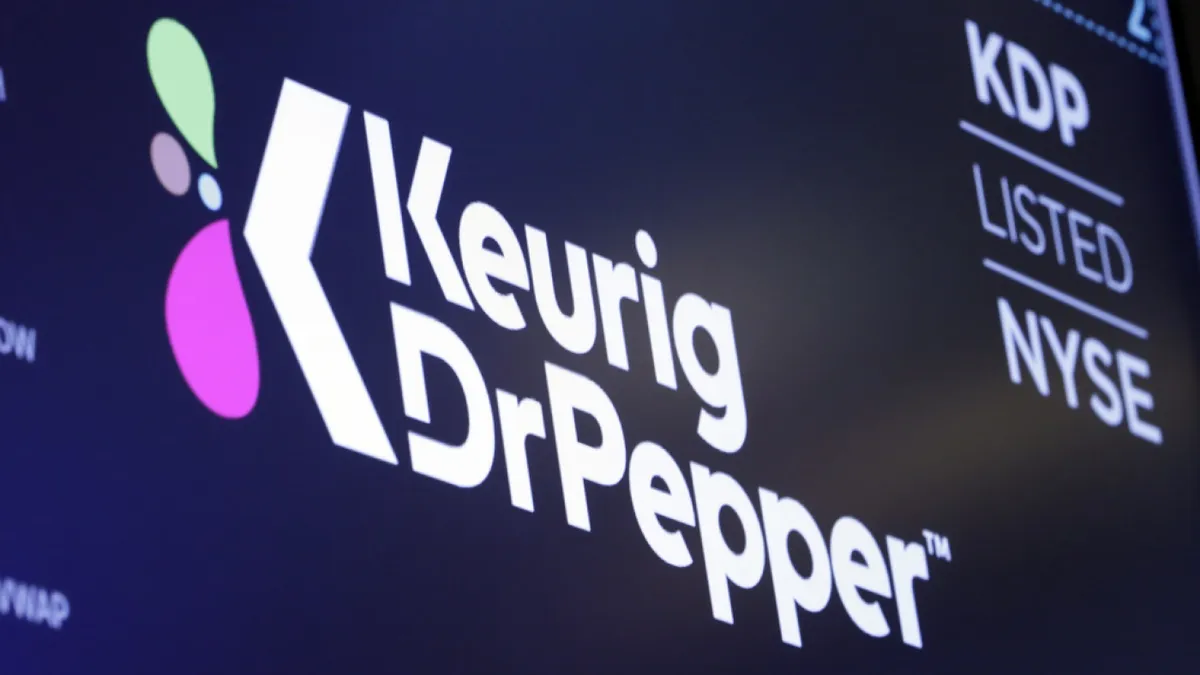
In a significant shift in the food and beverage industry, Keurig Dr Pepper announced its plans to split into two distinct companies less than a decade after its merger. On Monday, the company revealed it is purchasing the owner of Peet's Coffee in a deal valued at $18 billion (€15.7 billion). Following this acquisition, Keurig Dr Pepper will divide into one entity focused on coffee and another dedicated to cold beverages, including popular brands such as Snapple, Dr Pepper, 7UP, and various energy drinks.
This strategic decision marks the unwinding of the 2018 merger between Keurig and Dr. Pepper. In early trading on Monday, shares of Keurig Dr Pepper experienced a 7% decline, reflecting market reactions to the announcement. Timothy Cofer, the CEO of Keurig Dr Pepper, stated that the separation will allow both the coffee and beverage businesses to operate more nimbly and focus on growth opportunities specific to their respective markets.
During a conference call with investors, Cofer emphasized that the new structure would lead each stand-alone entity to dominate its industry with a sharp strategic focus. The operating models will be finely tuned to their unique categories and markets. He noted, “The combined coffee business will generate $16 billion in annual net sales,” allowing them to leverage their buying power against other major players in the coffee industry, such as Nestlé and Starbucks. Cofer remarked, “We like, and I like, the coffee category. Why? It's huge. It's ubiquitous.”
The acquisition of JDE Peet's, the parent company of Peet's Coffee, based in Amsterdam, significantly expands Keurig's footprint beyond North America. JDE Peet's boasts a portfolio that includes renowned brands like L'OR, Jacobs, Douwe Egberts, and several others, positioning the new coffee business to effectively compete in the growing global coffee market. Cofer pointed out that global coffee sales are consistently increasing, outpacing population growth.
The merger could also help mitigate the impacts of recent U.S. tariffs imposed by President Trump, which included a 50% tariff on most imports from Brazil, the world's largest coffee producer. As consumer preferences shift towards health-conscious alternatives, traditional soft drink sales for Dr Pepper have been declining. The newly formed beverage company, which will generate $11 billion in annual sales across the U.S. and Mexico, plans to pivot towards faster-growing beverage segments, including energy drinks like Ghost and Bloom.
Keurig Dr Pepper anticipates saving approximately $400 million over the next three years as a result of this merger, which is expected to finalize in the first half of 2026. Once the companies are successfully separated, Cofer will lead the cold beverage business from Frisco, Texas, while Sudhanshu Priyadarshi, the company’s chief financial officer, will head the coffee division from Burlington, Massachusetts, with its international headquarters established in Amsterdam.
This strategic maneuver is the latest in a series of significant changes within the food and beverage sector, which has been adapting to evolving consumer tastes. Earlier in 2023, Kellogg Co. split into two companies, and last year, Mars acquired Kellanova, the owner of snack brands like Pringles. Additionally, in July, Italian confectioner Ferrero announced plans to purchase WK Kellogg, the cereal company. These developments underscore the ongoing transformation in the industry as companies seek to align their offerings with consumer demands.